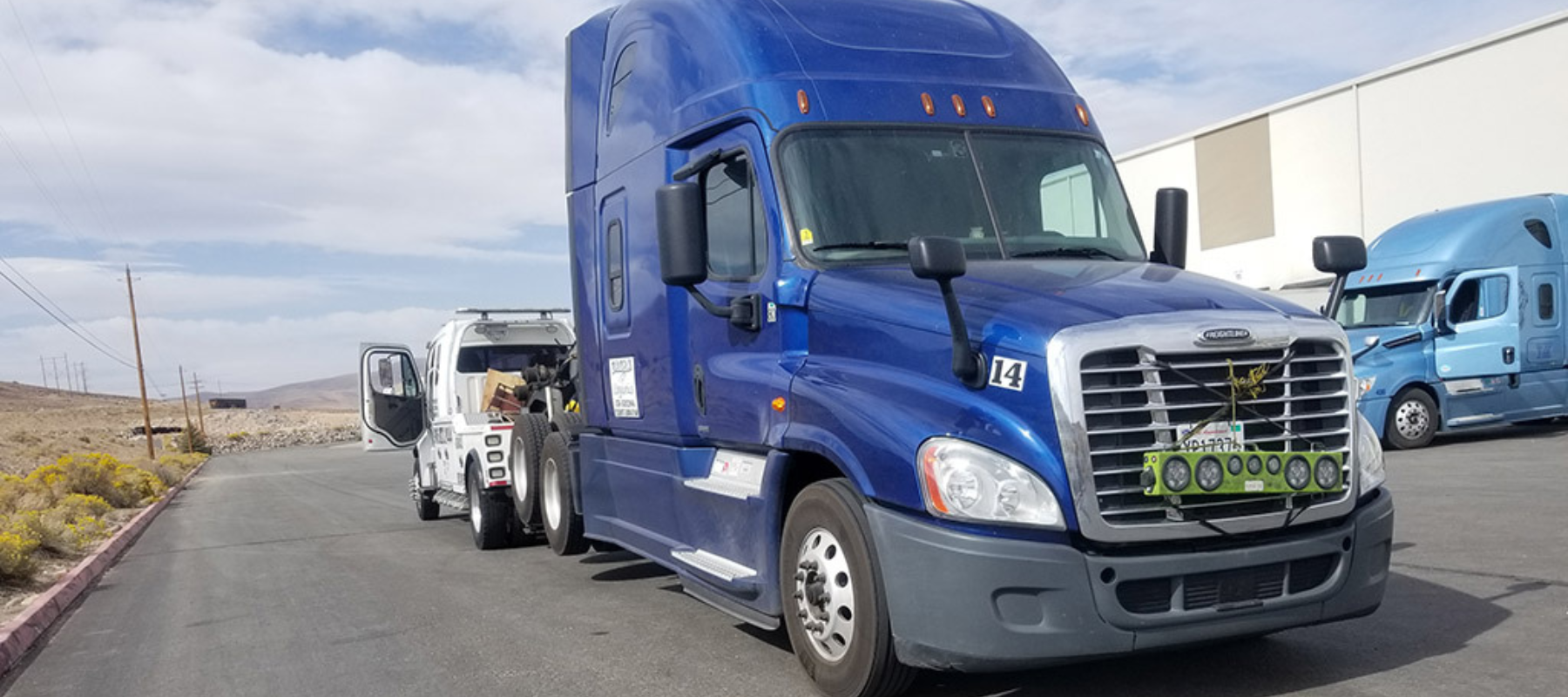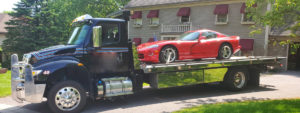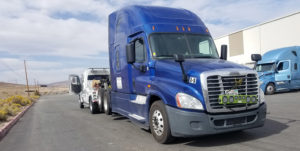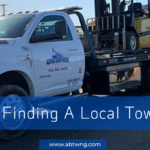
If you’ve ever been stuck on the side of the road with a broken down vehicle, you know how important it is to have access to reliable towing services. However, not all towing is created equal. When it comes to hauling vehicles of different sizes and weights, there are two main categories of towing: heavy vs light duty towing. Understanding the differences between these two types of towing can help you make more informed decisions when it comes to choosing a towing company or purchasing a tow vehicle. In this article, we’ll explore the key distinctions between heavy vs light duty towing, from the equipment used to the specific types of vehicles that fall into each category. So whether you’re a towing professional or simply curious about the industry, read on to learn more about the fascinating world of heavy vs light duty towing.
What is Light Duty Towing?

Light duty towing is a type of towing that is typically used for smaller vehicles such as cars, vans, and SUVs. This type of towing is designed to transport vehicles that are not excessively heavy and require less equipment to be towed safely. Light duty towing usually involves the use of a flatbed tow truck or a wheel lift tow truck. A flatbed tow truck is a type of truck that has a flatbed trailer attached to the back of the truck, and the vehicle being towed is placed on top of the trailer.
This type of tow truck is ideal for vehicles that are inoperable, have been involved in an accident, or need to be transported a long distance. On the other hand, a wheel lift tow truck is a type of truck that lifts the front or rear wheels of the vehicle off the ground and tows it with the remaining wheels on the ground. This type of tow truck is ideal for shorter distances or when a vehicle needs to be moved within a confined space.
Light duty towing is an essential service that helps drivers who experience car trouble or are involved in an accident. It allows these drivers to transport their vehicles safely and efficiently to a repair shop or other destination. Whether you need a jump start, a tire change, or a more complex towing service, a reliable light duty towing company can help get you back on the road in no time.
Advantages of Light Duty Towing
Light duty towing refers to the process of transporting smaller vehicles, such as cars, motorcycles, and vans. While heavy duty towing is necessary for larger vehicles and equipment, there are many advantages to choosing light duty towing whenever possible. Here are just a few of the benefits of this type of towing:
- Versatility: Light duty tow trucks can handle a wide range of vehicles and situations, making them incredibly versatile. Whether you need to tow a car from a parking lot or remove a motorcycle from a ditch, a light duty tow truck can get the job done.
- Cost-effectiveness: Since light duty tow trucks are smaller and less powerful than heavy duty ones, they often cost less to operate. This means that you may be able to save money on towing fees by opting for a light duty tow truck whenever possible.
- Speed: Light duty tow trucks are generally faster and more maneuverable than heavy duty ones, which means that they can often arrive on the scene more quickly. This can be especially important in emergency situations where time is of the essence.
- Safety: Light duty tow trucks are designed to handle smaller vehicles, which means that they can often tow them more safely and securely than heavy duty tow trucks. This can help to prevent damage to the towed vehicle and reduce the risk of accidents on the road.
Overall, light duty towing offers many advantages for both towing professionals and vehicle owners. Whether you need to transport a small car or a motorcycle, a light duty tow truck can get the job done quickly, safely, and cost-effectively.
What is Heavy Duty Towing?

Heavy duty towing is a specialized form of towing that involves transporting oversized or extremely heavy vehicles, equipment, or cargo. This type of towing requires a unique set of skills, experience, and specialized equipment, such as heavy duty tow trucks, winches, and rigging gear. Heavy duty towing is often needed for commercial or industrial purposes, such as hauling construction equipment, cranes, shipping containers, or even entire buildings.
One of the primary differences between heavy duty towing and regular towing is the weight and size of the vehicles or cargo being transported. Heavy duty towing vehicles are designed to handle loads that exceed the weight limits of conventional tow trucks. This means that they need to be equipped with stronger engines, suspension systems, and braking systems to safely tow heavy loads over long distances.
Another key aspect of heavy duty towing is safety. Given the size and weight of the vehicles being transported, heavy duty tow truck drivers must be highly skilled and experienced to ensure that the towing process is carried out safely and efficiently. This involves careful planning, proper use of rigging gear, and a deep understanding of the physics involved in towing heavy loads.
Overall, heavy duty towing is an essential service that plays a critical role in supporting various industries and ensuring that heavy vehicles and equipment can be moved safely and efficiently. If you need heavy duty towing services, it’s important to choose a reputable and experienced provider who can get the job done right.
Advantages of Heavy Duty Towing
Heavy duty towing involves the transportation of large, heavy vehicles or equipment such as buses, trailers, construction equipment, and more. While it may seem like a daunting task, there are many advantages to using heavy duty towing services.
Firstly, heavy duty towing allows for the safe and efficient transportation of large equipment and vehicles that may not be able to be moved by standard towing methods. The specialized equipment used in heavy duty towing, such as flatbeds, cranes, and specialized trailers, are designed to handle the weight and size of these vehicles and ensure they arrive at their destination safely.
Another advantage of heavy duty towing is that it can often save time and money in the long run. Rather than attempting to move large equipment or vehicles with a fleet of smaller vehicles, heavy duty towing can transport them in a single trip, saving time and reducing the risk of damage.
Additionally, heavy duty towing can be a lifesaver in emergency situations, such as accidents or breakdowns on the side of the road. Quick and efficient heavy duty towing services can ensure that vehicles and equipment are moved off the road as quickly as possible, reducing the risk of further accidents or delays.
The Differences Between Heavy and Light Duty
Heavy vs Light Duty Towing
When it comes to towing, there are two main types: heavy duty and light duty. Both serve an important purpose, but the differences between the two are significant.
Heavy duty towing is typically reserved for larger vehicles and equipment. This can include tractor-trailers, buses, RVs, and construction equipment. Because of their size and weight, these vehicles require specialized equipment to move them safely and efficiently. Heavy duty towing typically involves a tow truck with a capacity of at least 20,000 pounds, along with specialized equipment such as winches, chains, and air cushions.
Light duty towing, on the other hand, is designed for smaller vehicles and equipment. This can include cars, trucks, motorcycles, and small trailers. Light duty tow trucks typically have a capacity of 10,000 pounds or less and are equipped with a flatbed or a wheel lift. Flatbed tow trucks are ideal for transporting vehicles that cannot be driven, while wheel lift tow trucks are often used for shorter distances or when space is limited.
One of the key differences between heavy and light duty towing is the technique used to tow the vehicle. Heavy duty towing typically involves a method called “recovery towing,” which is used when the vehicle is stuck or unable to move on its own. Recovery towing often involves using winches, chains, and other equipment to lift the vehicle and transport it to its destination.
Light duty towing, on the other hand, often involves “transport towing,” which is used to move a vehicle that is drivable but needs to be transported for other reasons, such as a breakdown or accident. Transport towing typically involves using a flatbed or wheel lift to load the vehicle onto the tow truck and transport it to its destination.
Final Words
In conclusion, heavy vs light duty towing are two distinct types of towing that serve different purposes. Both require specialized equipment and techniques to ensure safe and efficient transportation. If you find yourself in need of heavy or light duty towing, it’s important to choose a reliable and experienced towing company. Alpha Brothers TOWING is a top-rated towing service that offers both heavy and light duty towing. Their team of professionals is equipped with the latest technology and equipment to ensure that your vehicle is transported safely and efficiently.
Whether you need a tow for a commercial truck, an RV, or a small sedan, Alpha Brothers TOWING has the expertise and equipment to get the job done right. Don’t hesitate to contact them for all of your heavy vs light duty towing needs.




